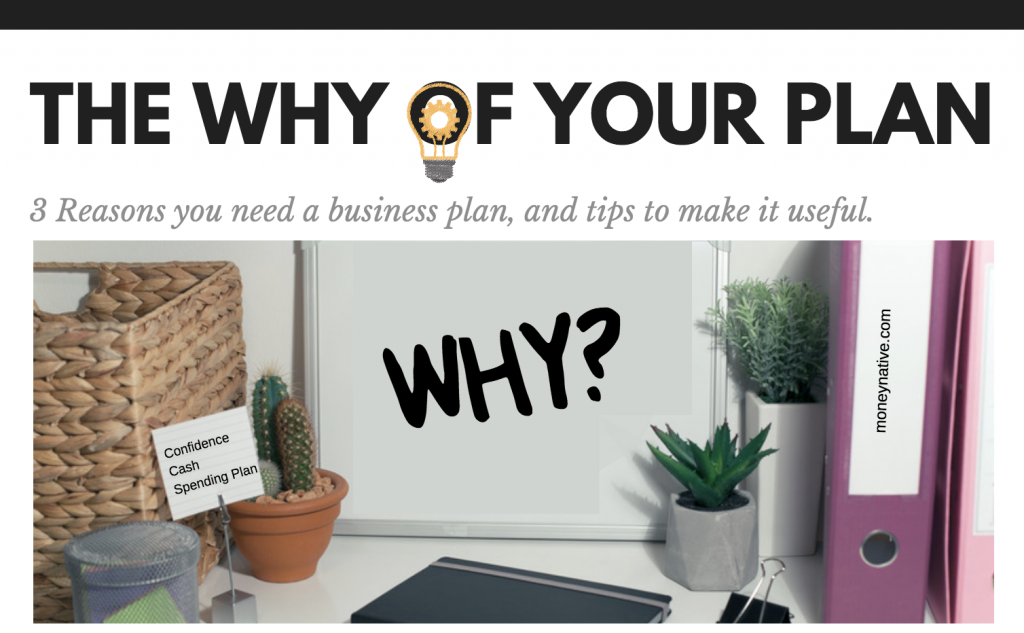
Every day, I work with small business owners, non-profits and entrepreneurs who have great businesses but need cash to grow their business. One of the most common mistakes I see these individuals make is not having a complete business plan in place. I can list at least 50 reasons why you need a business plan. In this post, I’m sharing the top three reasons your business needs a solid plan.
- Boost your confidence as a business owner – You are likely to increase the positive feelings of confidence and optimism in your business after you complete your business plan. A healthy sense of self-esteem is more important than any other business metric to keep the wheel of your business turning. Your first instinct may be that you already know your plan in your head. But getting your plan down ensures that you’re the biggest champion of your business. The more value you can tangibly see in yourself and in your business the better off you are.
- The ability to access funding – As your business grows to service more customers, you’ll need more cash to operate. I like to imagine an old water wheel that powered mills in the late 1800s. It required the consistent flow of water to operate. This is the same with your business. It’s no accident that we use the terms “cash flow” and “liquidity” in business finance. Just like the mill needed water flow, your business requires consistent cash flow to turn the wheel.Start by listing the cash your business has, the cash you expect to collect from sales each month, and where you expect to spend that cash over the next year. Your first instinct may be to go to a bank or to get investors. But do this exercise first to help you calculate how much cash you need. It will help you think of creative solutions on how to do more with less cash or determine other sources of cash other than banks and investors.
- Business plans help you budget– Instead of seeing a budget as a restraint, see it as a nice hug from your favorite aunt. Just like that hug, a budget says, “Do your best. You’re loved and it’s going to be okay.” I recommend sitting with a trusted mentor or professional to do this. Your first goal in a business is to break even where your sales equals your costs. List the costs that you must pay this year like rent and insurance and health care. Your first instinct may be that you have to focus on minimizing taxes. But do this exercise to help you think about what your biggest opportunities are for sales and what you can do to rightsize your costs.
Writing a business plan is often an intimidating venture. But getting it out of your head and into words, pictures and numbers will help ensure your future financial success. Take the time to do this now before it’s too late.
Liz Lemesevski helps small business owners, non-profit leaders and entrepreneurs build a strong financial foundation to attract lenders, investors and donors. She started her company, Money Native, to help non-traditional business types shape their organization’s bright future. She specializes in profitability metrics, cash flow improvement, budgeting, capital structure, financial statement analysis, and competitive analysis.
